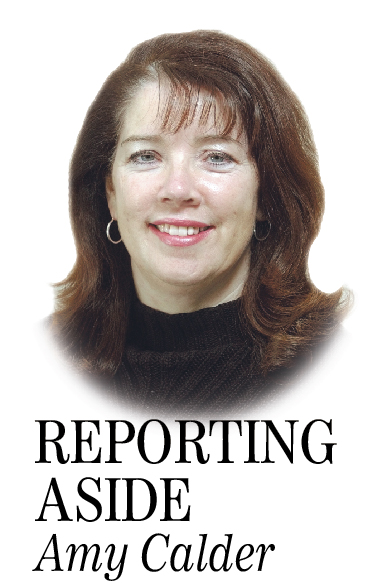It was 1973 and our theater troupe from Skowhegan Area High School was heading to the New England Drama Festival.
We performed “The Second Shepherds’ Play” that year for our entry in the one-act play contest and won both the regional and state competitions, so we were going to the big festival in Woonsocket, Rhode Island.
It was a big deal in those days to pack up, get on a bus and travel out of state for such a grand and prestigious affair.
We had worked hard. Our drama director, Elizabeth Merrill, who also was the head of the English Department, made sure of that.
She was a perfectionist and she expected the best from us, whether we were acting or part of the backstage crew.
Every movement we made on stage, every prop, every intonation of voice had a reason behind it. Nothing was done in a vacuum. There was no horsing around on Mrs. Merrill’s stage. We were to be prompt, courteous, listen to her direction and never be late to rehearsals and if we were, there had better be a darned good reason for it.
Some might have called her strict or controlling. We ultimately learned that discipline is a big, important part of putting on a decent show.
We were performing with the best high school drama departments in New England and we had to strut our stuff.
That we had gotten this far was a huge compliment and testament to our skill and hard work.
Besides teaching us the basics of theater — among them acting, blocking, elocution, character development — Mrs. Merrill taught us discipline, which goes a long way toward getting a performance just right.
While I had done a lot of acting in high school and later in community theater, I also worked backstage on some shows doing lighting, prompting and props. Those who work backstage are as critical to a performance as the acting.
As a cast member from the public television series “Downton Abbey” said when the final season ended recently, the acting was the easy part; the hard work is done behind the scenes. The cast of the British series paid tribute to the crew at a gala celebration of the show, asking crew members to stand and be applauded.
For the “The Second Shepherds’ Play,” a medieval farce with serious undertones, I was the props person and had to make sure all of the items used onstage were at the right place at the right time. It was not a huge job, but one important enough that I got to go to the New England Drama Festival. I felt privileged.
We spent a weekend in Woonsocket, a town I don’t remember a lot about, but officials there gave us each a little red rooster pin as a memento and I still have that rooster somewhere, packed away among my other drama-related things, including pins, scripts, medals and certificates.
The thing I remember most about the trip to Woonsocket was the fun of being with fellow thespians on a mission, meeting other students from around New England, watching their performances and talking about them afterward — what we thought was done well and why, and how they might have done things differently. It was a great learning and bonding experience.
Our co-director was Sumner Hayward, and he reminded me recently that at the New Englands, we did not compete for first place; we were rated on our performance. We were disappointed that the judges did not like the cart we used as a revolving platform holding Mary and the baby, but we realized in the end that being perfect was not what mattered most. We had done our best. We performed well and drove away with memories to last a lifetime.
Indeed, as I wrote stories this month about Waterville, Lawrence and Winslow high schools, as well as Maine Central Institute, competing in the Maine Drama Festival, those memories came flooding back.
While watching Waterville students rehearse their play a few days before the state festival, I shared their sense of excitement and anticipation. I related to the camaraderie they shared. And when I spoke with MCI’s drama coach, Debra Susi, about that school’s plan to perform at the New Englands in Connecticut in April, I felt a twinge of nostalgia.
A part of me wished that I, too, were still part of that great, inexplicable experience that is theater. Ask anyone who has been a part of it and he or she will most assuredly tell you the same thing: There’s nothing like it in the world.
Amy Calder has been a Morning Sentinel reporter for 28 years. Her column appears here Mondays. She may be reached at acalder@centralmaine.com. For previous Reporting Aside columns, go to centralmaine.com.
Send questions/comments to the editors.


